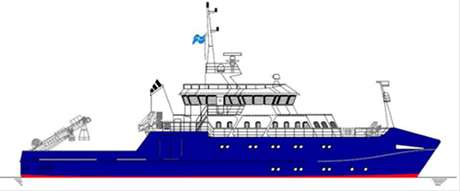New vessel will contribute to marine knowledge

The University of Gothenburg is investing in a new research vessel that will further improve the capacity for education and research.
"The new vessel will open up for research that hasn't been possible in the past. This is great news, considering for example that the U.N.'s latest climate report emphasised that we need more marine research in order to better understand the climate change issue," says Vice-Chancellor Pam Fredman.
In 2050, the world's population will total 9 billion people. Sixty per cent of them will reside in coastal areas at risk of flooding due to climate warming.
"We need more marine research for several reasons. We need to prepare ourselves for the future, and we also need to figure out how to use marine resources and manage tourism in coastal areas sustainably," says Elisabet Ahlberg, Dean of the Faculty of Science.
The new vessel will provide the university with a super-modern marine laboratory. It will make it possible to study large-scale processes, such as how changes in the climate affect ocean currents and pH values, which in turn affect marine life.
"It is important that the students get to follow and understand these large-scale processes. Our students are the next generation of experts in marine science, and improved education will translate to expanded work opportunities for them, both nationally and internationally," says Ahlberg.
The new vessel will be 45 metres long and will weigh about 800 tonnes. It will have a crew of five in addition to about 20 researchers and students. The new vessel is larger than the old research vessel Skagerak, yet will consume 40 per cent less fuel.
"Skagerak, which will be retired after 40 years in service, is not optimal for research and education. It also has some work environment issues," says Michael Klages, director of the Sven Lovén Centre for Marine Sciences.
Designed to meet strict environmental standards
The planning has largely been guided by environmental considerations.
"We haven't limited ourselves to present environmental regulations as we have also tried to comply with international legislation that will be presented in the near future," says Ahlberg.
As one of the first universities in the world, the University of Gothenburg became environmentally certified in 2006. The vessel will be included in the university's environmental certification ISO14001. The shipbuilder, NAUTA Shiprepair Yard S.A in Poland, is also environmentally certified.
The new vessel will cost over 100 million SEK to build and delivery is planned for March 2015.
Provided by University of Gothenburg


















